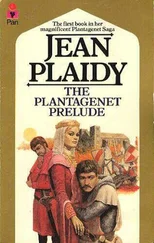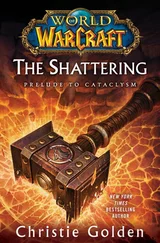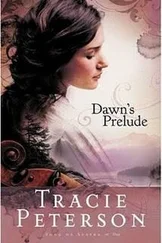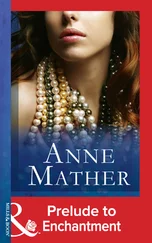Gerald Kersh - Prelude To A Certain Midnight
Здесь есть возможность читать онлайн «Gerald Kersh - Prelude To A Certain Midnight» весь текст электронной книги совершенно бесплатно (целиком полную версию без сокращений). В некоторых случаях можно слушать аудио, скачать через торрент в формате fb2 и присутствует краткое содержание. Жанр: Старинная литература, на английском языке. Описание произведения, (предисловие) а так же отзывы посетителей доступны на портале библиотеки ЛибКат.
- Название:Prelude To A Certain Midnight
- Автор:
- Жанр:
- Год:неизвестен
- ISBN:нет данных
- Рейтинг книги:3 / 5. Голосов: 1
-
Избранное:Добавить в избранное
- Отзывы:
-
Ваша оценка:
- 60
- 1
- 2
- 3
- 4
- 5
Prelude To A Certain Midnight: краткое содержание, описание и аннотация
Предлагаем к чтению аннотацию, описание, краткое содержание или предисловие (зависит от того, что написал сам автор книги «Prelude To A Certain Midnight»). Если вы не нашли необходимую информацию о книге — напишите в комментариях, мы постараемся отыскать её.
Prelude To A Certain Midnight — читать онлайн бесплатно полную книгу (весь текст) целиком
Ниже представлен текст книги, разбитый по страницам. Система сохранения места последней прочитанной страницы, позволяет с удобством читать онлайн бесплатно книгу «Prelude To A Certain Midnight», без необходимости каждый раз заново искать на чём Вы остановились. Поставьте закладку, и сможете в любой момент перейти на страницу, на которой закончили чтение.
Интервал:
Закладка:
‘You poor dear!’
‘You understand me. Pity, that’s what it is, pity! I’m too soft. I hate to hurt people’s feelings; I’d rather kill a man than hurt his feelings.— do you know that? And it’s all my mother’s fault. I hate my mother. I suppose you think that’s a terrible thing to say, don’t you?’
‘I see you have the courage of your convictions,’ said Avril.
‘No, I haven’t. I haven’t got the courage of anything. I haven’t got the courage … of … of … a daffodil. A daffodil fights for its bit of hold in the soil. But could I fight for anything? No. And it’s all my mother’s fault. Did she ever treat me as a human being? I tell you, dezir sweet Avril, she always treated me like a dog, a dog!’
‘There, there, don’t cry.’
‘How can I help crying if my mother treats me like a dog? How can I help it? If I had had a father things might have been different, but I never had a father. He died in the War, at Ypres. There was an explosion and he was missing. The next time we meet, you kind, sweet, beautiful woman, I’ll bring you his photograph. He sits on that little chair like a man on a throne. Why did he have to die? Tell me, why did he have to leave me all alone with my horrible mother? Why?’
‘I don’t know.’
‘She was afraid of losing me,’ said Roget, weeping. ‘She lost him and she didn’t want to lose me. She wouldn’t let me play football in case I got kicked, and she wouldn’t let me play cricket in case somebody hit me with a bat. And she wouldn’t let me let off fireworks on Guy Fawkes day in case I burnt my fingers, and she wouldn’t let me go and play with other boys in case one of them knocked me down and I fractured my skull on the pavement, and she wouldn’t let me cross the road and she wouldn’t let me climb trees. She wouldn’t let me do anything. She kept me on a lead, she turned me into a dog, a dog, a dog! She wouldn’t let me talk to any girls in case they led me astray or gave me diseases. You don’t know what I’ve had to go through! Everybody else had a pony. Not me, oh no, not little me. I might have fallen off, or it might have bitten me, or kicked me. She reads all the filthy newspapers, damn her, and she keeps a big book full of little bits she cuts out all about little boys who’ve had horrible accidents. Little boys and little girls. Sometimes they’ve been to a circus and they go home and try and do a trapeze act, and hang their bloody little selves. Or sometimes they blow up a toy balloon, and it goes the wrong way and they choke themselves. So she never let me go to a circus, so she never let me have a toy balloon, so she filleted every bit of fish because once in some paper or other she saw something about some nauseating brat who swallowed a bone in a bit of fried cod. She never let me do anything. I wanted to be a writer, but she read somewhere, in some idiotic book, that writers are all womanizers and drunkards, and she didn’t want me to go into business because she read somewhere in a paper about a business man who defaulted and blew his brains out. And here I am, here I am!’
‘Then why don’t you simply put on your hat and walk out?’
Roget cried like a child, wrinkling up his face, and said: ‘It’s pity! Pity is the ruin of me. She’d be so broken-hearted if I went away. She’d die. She told me so. I’m all she has and you don’t know — you’ll never know — you couldn’t possibly know how that woman has suffered. Oh my God, how I hate that woman! But she’s sick, very sick. Or at least, she pretends she is, and one of these days…’
‘— One of these days you’ll come into her money and go on the loose, I suppose?’
‘You’ve said it exactly. How well you understand me! One of these days..,.. Listen, I’m going to tell you something.’
He paused. Avril said: ‘Well?’
But Roget apparently had thought better of it. He looked as if he was going to be sick; but Avril’s eyes were elsewhere. Her husband had moved from Catchy to Oonagh Scripture, and Mothmar Acord had taken his place. That leering, sinister man approached Catchy with frank, open lustfulness, putting a hand on the back of her neck, which in those days was cool and round and fine of texture; a famous neck, solid-looking as ivory. He said: ‘You’re a very good-looking girl, aren’t you?’
‘Do you think so?’
‘I do. You can see I do. I want you to tell me something.’
‘What would you like me to tell you?’
‘Are you a masochist, by any chance?’
‘Why do you ask?’ said Catchy in an uncertain voice.
Mothmar Acord replied: ‘There’s something about you that invites violence.’
At this, a pleasurable tremor passed from the base of Catchy’s skull to the base of her spine and she felt her heart beating and her toes curling inwards. They exchanged glances. Asta Thundersley, whci had approached with a couple of full glasses, heard the end of the conversation and observed the interchange of looks.
She remembered this later.
36
It seemed to Asta that her foolish, futile party had been limping on since the beginning of last week. She began to jeer — not to laugh, but to jeer at herself for having organized it. Sir Storrington approached her and said: ‘My God, Asta, what the devil have you given us? My dear good lady, these are knock-out-drops. I’d give a good deal to know what you put in it.’
Instantly Schiff, who appeared to be listening to everything in a dozen places at the same time, popped out with a dishevelled head and said: ‘This is my Form ule . It is I who have invented this. What do you mean by a good deal? I’m always ready, Baronet, to make a deal.’
At this Sir Storrington Thirst gave him the look that he kept for his creditors; but then, stung by an idea, he took Schiff aside and said that his estate was somewhat embarrassed but the name of Sir Storrington Thirst was a good name — at least it sounded remarkably good — and was available for a consideration, as a name to print on a label. Schiff made a note of this in a note-book with a transparent cover bound with wire. When Sir Storrington said: ‘That’s a clever sort of idea, that little book of yours,’ Schiff told him that he could get them wholesale at 72/- a gross.
‘There’s a lady who has found herself a friend,’ he concluded with a wink, pointing in the direction of Cigarette.
Shocket the Bloodsucker was sitting, half asleep, in a spidery. legged little chair. Near-by, Cigarette and Titch Whitbread were gazing into each other’s eyes.
Although the Murderer had been involving himself with almost feverish gaiety in conversations to the left and the right of him, he had not let Detective-Inspector Turpin slip out of his range of vision. He was a punctilious man. He liked everything in his life to be carefully timed. He agreed with the preacher — to everything there was a season and a time for every purpose under the heaven. There was a time to save, and a time to cast away. He was on the look-out for an effective moment. Detective-Inspector Turpin was now making distant yet friendly conversation with Cigarette and Muriel. Asta Thundersley was pressing a drink into his hand, and Turpin was refusing. The Murderer watched the detective-inspector’s face. He saw the twinkle of the watchful eyes and the little, quick smile of the pallid, disciplined lips. Turpin was refusing. Asta was insisting. Then, with a brusque gesture, Turpin surrendered. He took the glass. This pleased Asta Thundersley, who drank his health. Turpin raised his glass to his lips, tilted his head backwards, and made his Adam’s apple move up and down. One would have sworn that he was drinking; but the Murderer could see that the level of the orange-coloured liquid in the glass had not sunk. Asta had taken a great gulp; Muriel and Cigarette had emptied their glasses. But Turpin was keeping his wits about him, and that was exactly what the Murderer wanted.
Читать дальшеИнтервал:
Закладка:
Похожие книги на «Prelude To A Certain Midnight»
Представляем Вашему вниманию похожие книги на «Prelude To A Certain Midnight» списком для выбора. Мы отобрали схожую по названию и смыслу литературу в надежде предоставить читателям больше вариантов отыскать новые, интересные, ещё непрочитанные произведения.
Обсуждение, отзывы о книге «Prelude To A Certain Midnight» и просто собственные мнения читателей. Оставьте ваши комментарии, напишите, что Вы думаете о произведении, его смысле или главных героях. Укажите что конкретно понравилось, а что нет, и почему Вы так считаете.








![Айзек Азимов - Прелюдия к Основанию [= Прелюдия к Академии // Prelude to Foundation]](/books/435122/ajzek-azimov-prelyudiya-k-osnovaniyu-prelyudiya-k-ak-thumb.webp)



